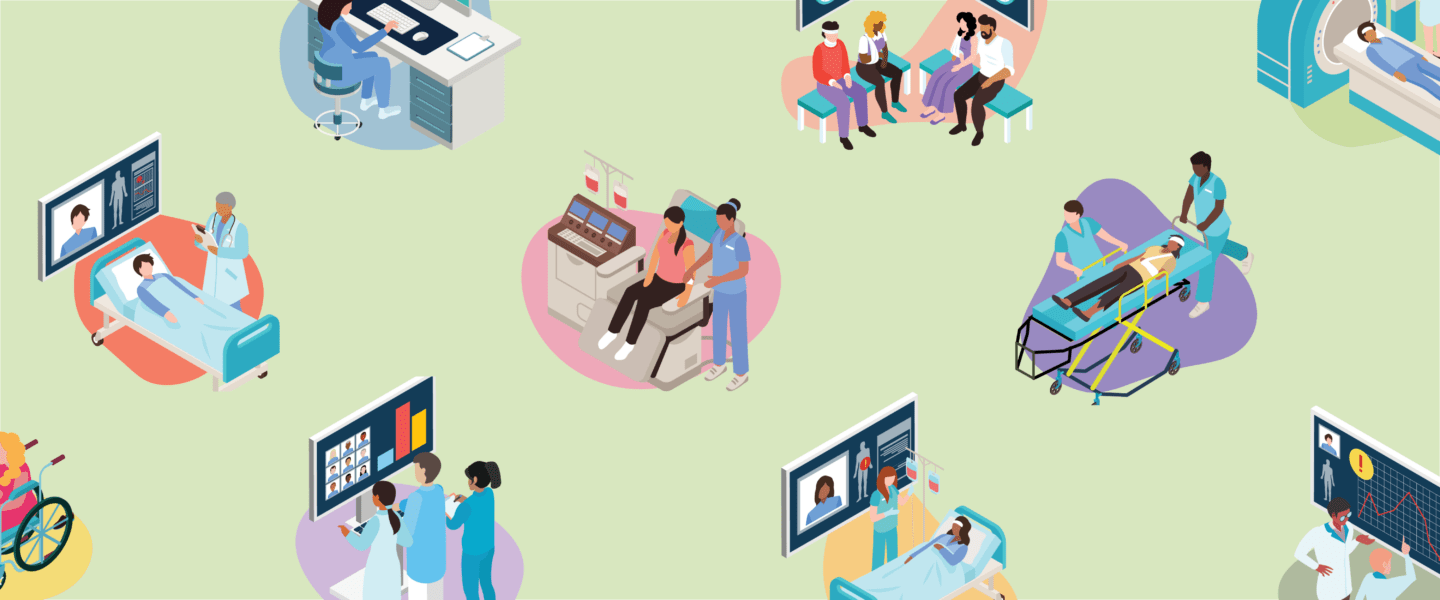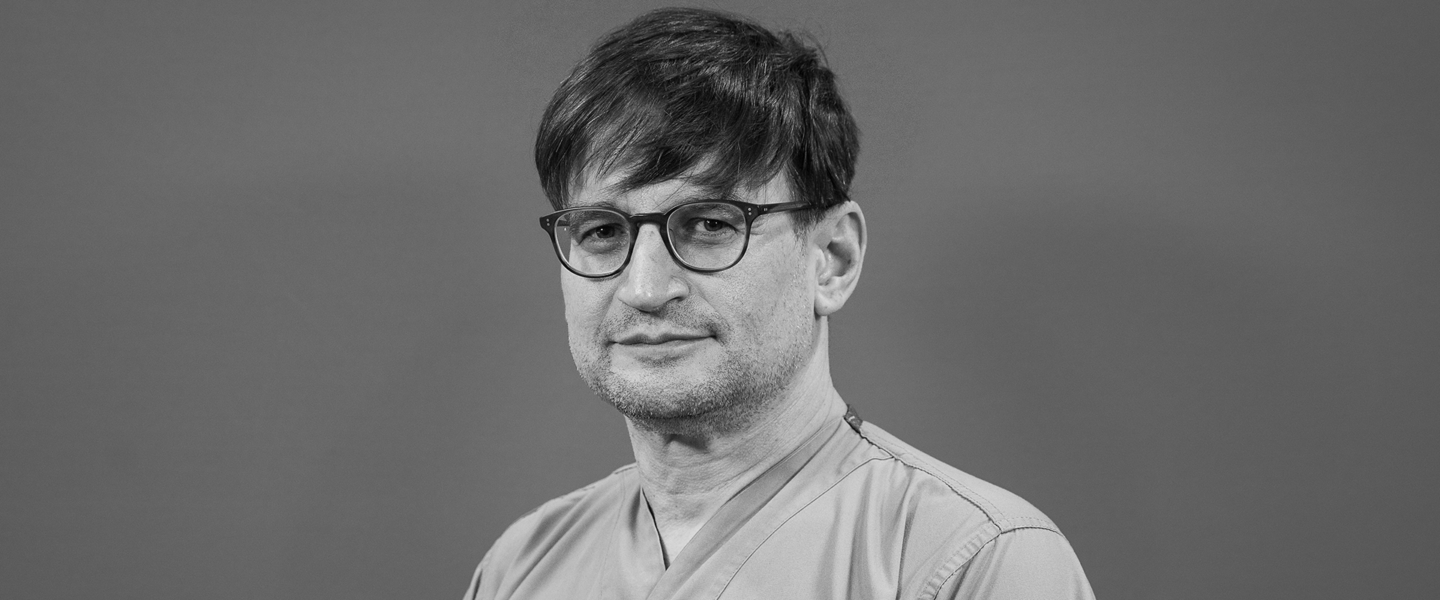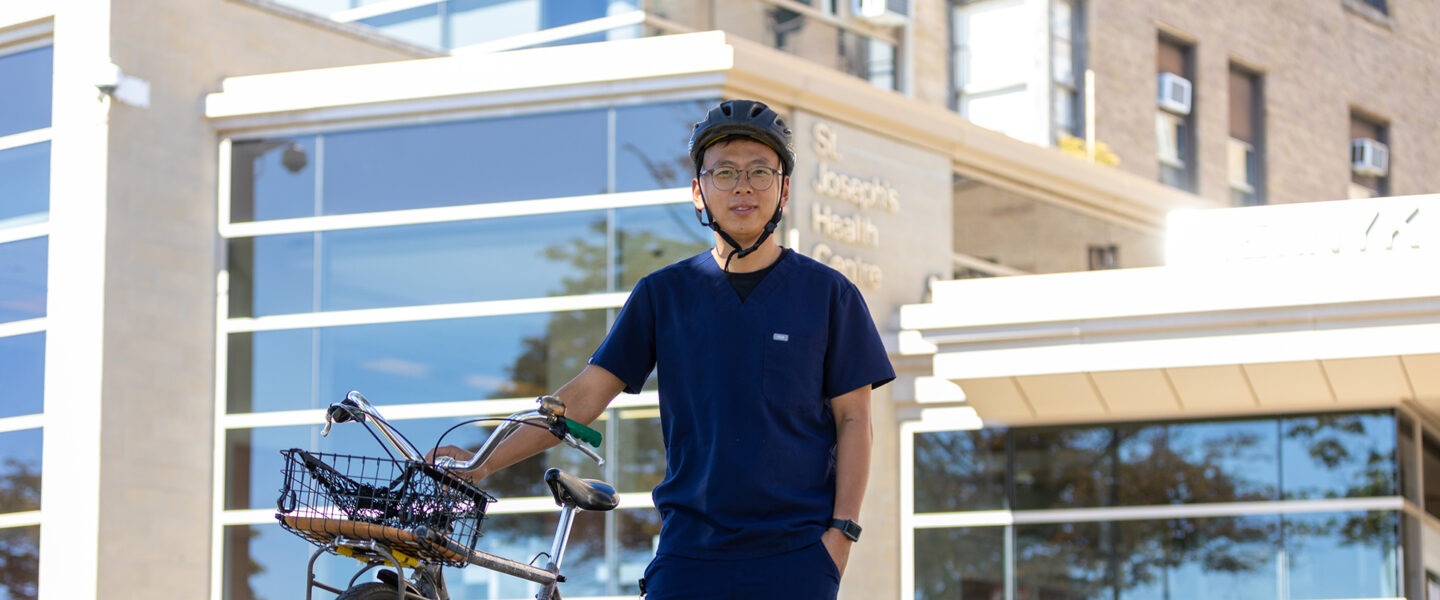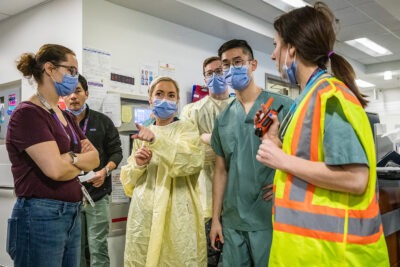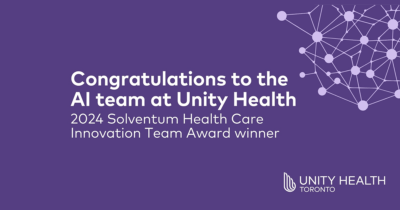
Unity Health Toronto
Our Strategy
Getting Care
Visiting a Patient
Get Involved
Our Locations
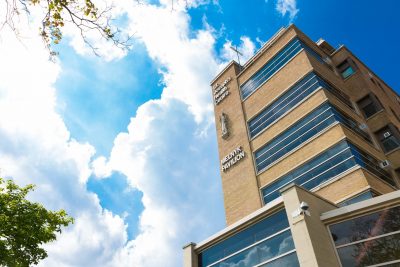

St. Michael’s Hospital
30 Bond St.,
Toronto, ON
M5B 1W8
The main entrance is located near Queen St. East and Victoria St. The Bond St. entrance is not open to the public at this time.
416-360-4000


